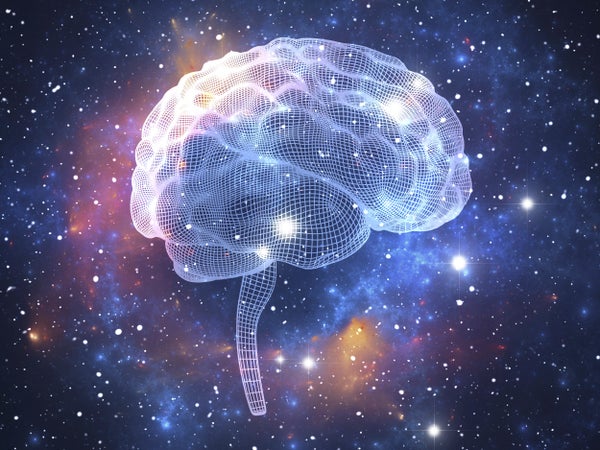This article was published in Scientific American’s former blog network and reflects the views of the author, not necessarily those of Scientific American
Is your mind—every sensation, feeling, and memory you’ve ever had—completely tractable to your brain? If so, does it mean that you are a mere machine, and that all meaning and purpose is illusory?
About a year ago, I joined author of Aping Mankind Raymond Tallis, and German philosopher and author of I am Not a Brain Markus Gabriel to discuss these issues at the How the Light Gets In Festival, hosted by the Institute of Art and Ideas. The video of the debate, which you can watch below, just came live last month.
My co-panelists and I were tasked to start the debate with short pitches stating our positions on whether our minds and consciousness are no more than matter and mechanism. Specifically, we were charged with answering three questions at the outset, in 4 minutes or less:
On supporting science journalism
If you're enjoying this article, consider supporting our award-winning journalism by subscribing. By purchasing a subscription you are helping to ensure the future of impactful stories about the discoveries and ideas shaping our world today.
Are our minds just our brains?
Has neuroscience led philosophy astray?
Do we need to create new concepts, or abandon old ones, to understand why we feel a sense of meaning?
The script that I prepared to address them follows below—but make sure to check out the full video for alternative views, and the discussion that ensued!
Our art, our science, our humanity, are not less because they arise from our brains. We are a piece of the universe trying to make sense of itself, and that’s enormous. Even if that’s all there is.
As for the question of how can life be meaningful if we are our brains? My answer is, how couldn’t it be? Our brains are meaning-seeking machines. We have evolved to find meaning, to connect cause and effect, to extract order, structure and purpose from the world around us, even when surrounded by chaos. So we can all rest assured that our brains will not fail to find meaning, even if the universe has no purpose.
The feeling that life is meaningful is hardwired into us—we wouldn’t be here if we (and our ancestors for eons) did not feel that life was worth living. So we create our own meanings, which may or may not be illusory, but feel very real to us nevertheless. Indeed, one of the ways in which a brain finds meaning is by convincing itself that it is something more than a brain.
